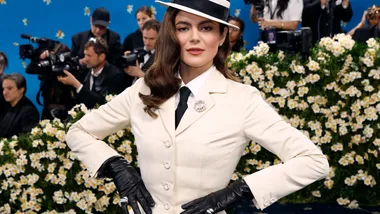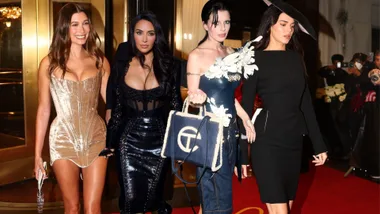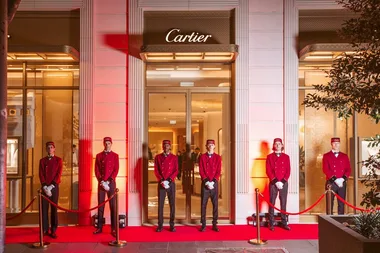While the fashion industry has been making strides on the sustainability front, denim is still one of the most resource-heavy, environmentally damaging items we buy, despite being the one many of us frequently look to add to our wardrobes year-round.
Denim is made from cotton (and lots of it) which is often grown with harmful fertilisers and pesticides, which means it requires large amounts of water to produce. A single pair of jeans might need upwards of 7,000 litres, per a Greenpeace report, an alarming number when considering just how many pairs are being made each day around the world. And that doesn’t even take into account what’s needed to harvest the cotton for those jeans in the first place.
On top of denim productions water-wastage, much of it is filled with chemicals and coloured dyes, which once used in production, are filtered back into our rivers and oceans, which has been proven to have a permanent, destructive impact on ecosystems and local communities.
RELATED: These Are Officially The 7 Most Sustainable Brands In Australia
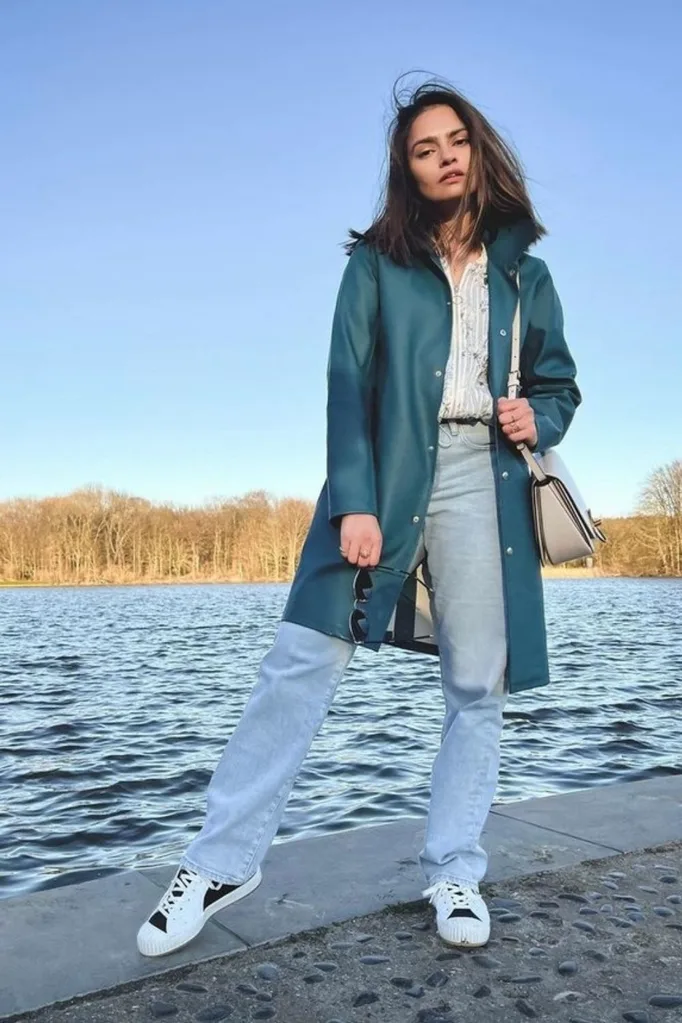
Outland Denim
Established in 2011 to help provide vulnerable women with employment and training opportunities, Outland Denim founder James Bartle set out on a mission to employ Cambodian cutters, seamstresses and pattern makers, paying these women living wages, which grants them the agency to escape exploitation and slavery. The brand also uses innovative technology to decrease the environmental impact of denim production and counts Meghan Markle as a firm fan.
Shop here.
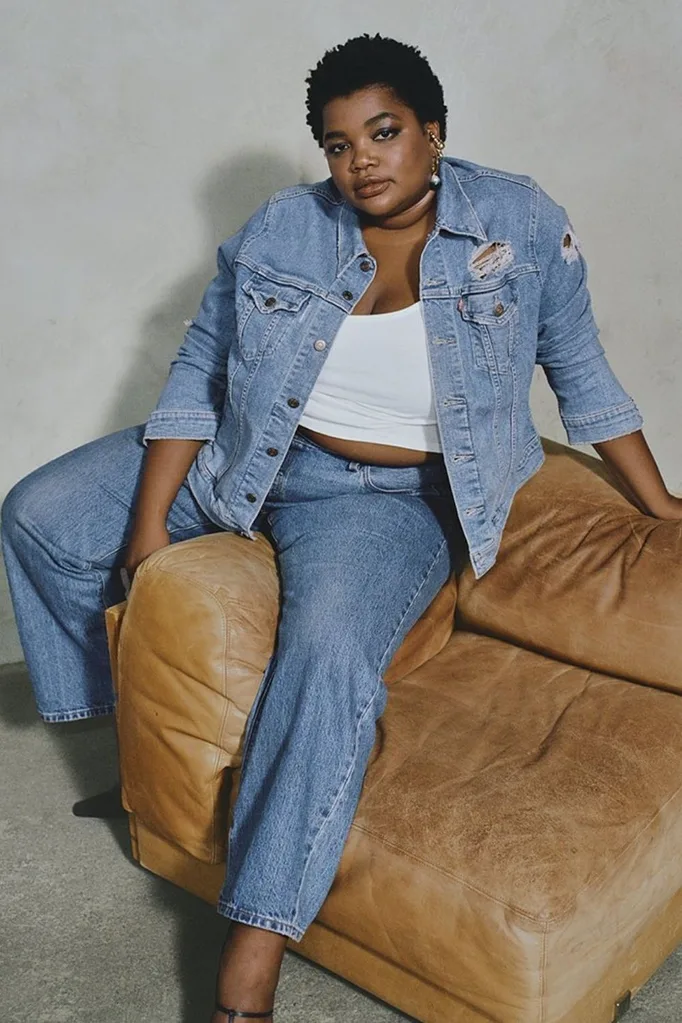
Levi’s
With its iconic history, Levi’s pushed its innovation to make the brand’s most sustainable denim yet with the launch of its Wellthread collection. As part of its mission to reduce water and chemical usage, the collection is produced from cottonised hemp, which comes from rain-fed hemp crops and is grown using fewer pesticides than cotton. The brand finished this with its innovative WaterLess technology, a processing technique reportedly saving more than 96 per cent of the water normally used in the finishing process.
Shop here.
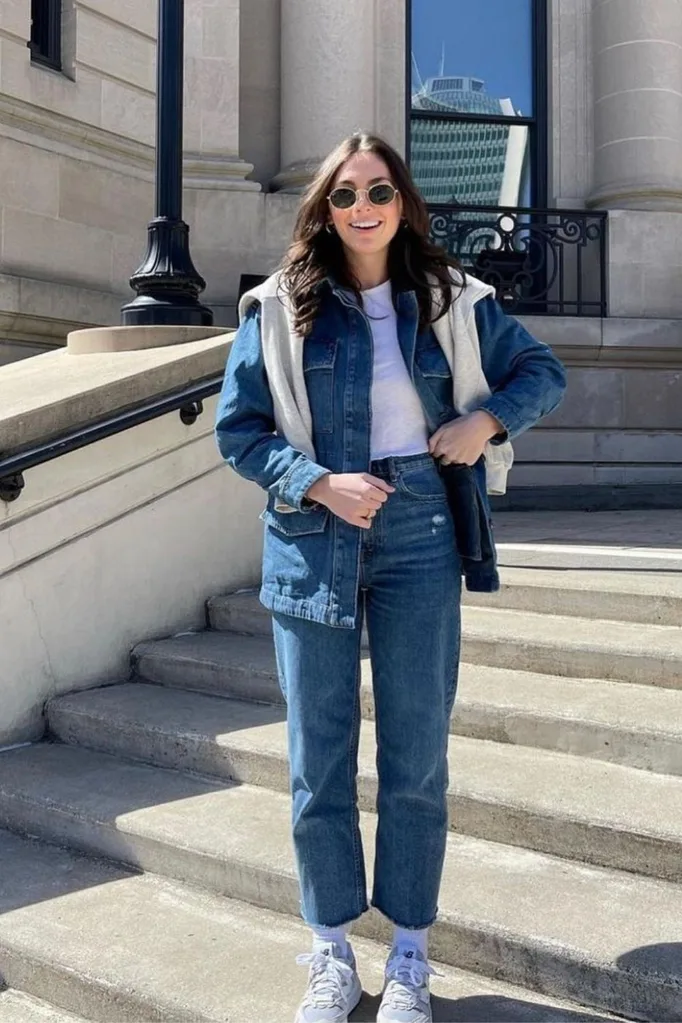
Everlane
Everlane founder Michael Preysman was determined to find a “clean” and ethical factory to work with when creating the brand’s denim offerings. After a six-year search, the label found a Leadership in Energy and Environmental Design (LEED) certified factory in Vietnam that relies on solar power, recycles 98 per cent of its water and uses reverse osmosis to filter the remaining 2 per cent into clean drinking water. Any offset waste from Everlane’s denim production is combined with cement to create bricks used to build homes for locals in need.
Shop here.
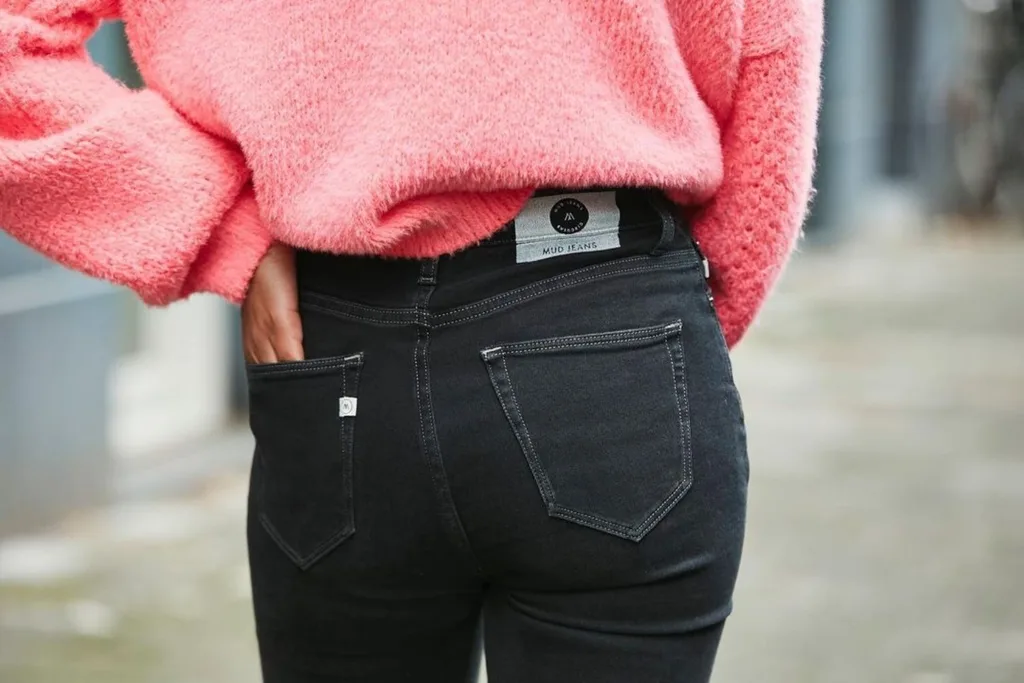
MUD Jeans
Working on a circular economy, MUD Jeans inspires its customers to return worn-out jeans so they can be cut into pieces and blended with Global Organic Textile Standard (GOTS) certified cotton to create new denim yarn. The process cuts down on water and chemical usage, and all products recycled are later sold as unique vintage pairs and named after the former wearer. MUD has also introduced a Lease or Buy option to tackle the waste built up by fast fashion – customers can ‘rent out’ a pair of jeans on subscription rather than buying and throwing away.
Shop here.
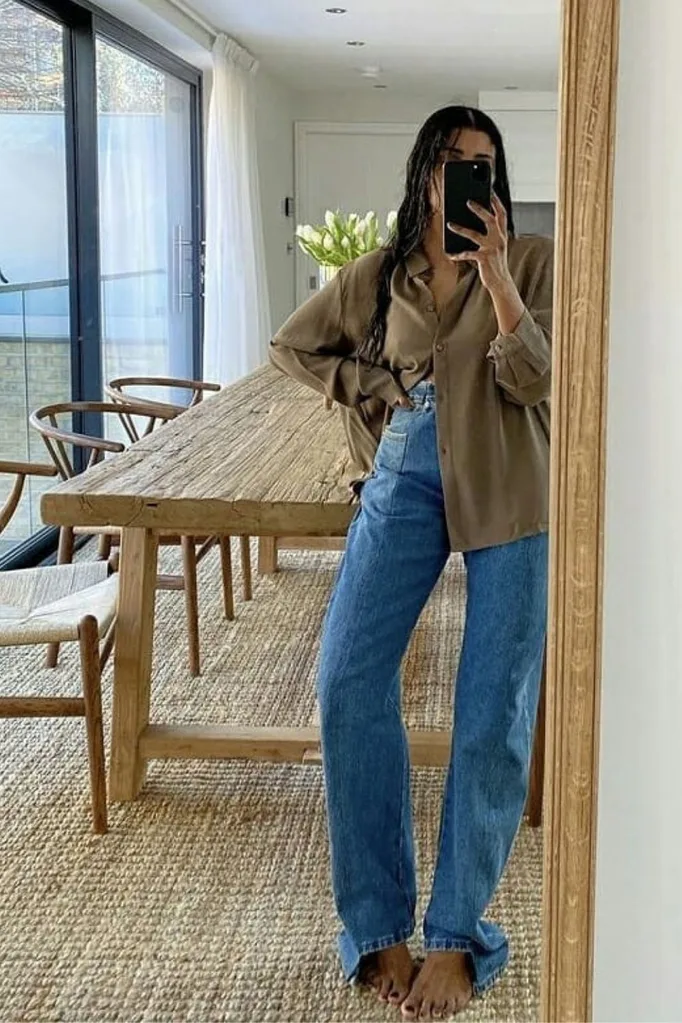
E.L.V. Denim
With environmental and social sustainability at the heart of the brand, E.L.V. Denim’s pieces are designed and produced in East London using local factories and ateliers, keeping the carbon footprint at a minimum and supporting local communities. All jeans and jackets are created using their “zero waste” ethos, taking old discarded denim and transforming it into the modern and sophisticated designs the label has become known for, meaning each pair is both unique in colour and fit.
Shop here.
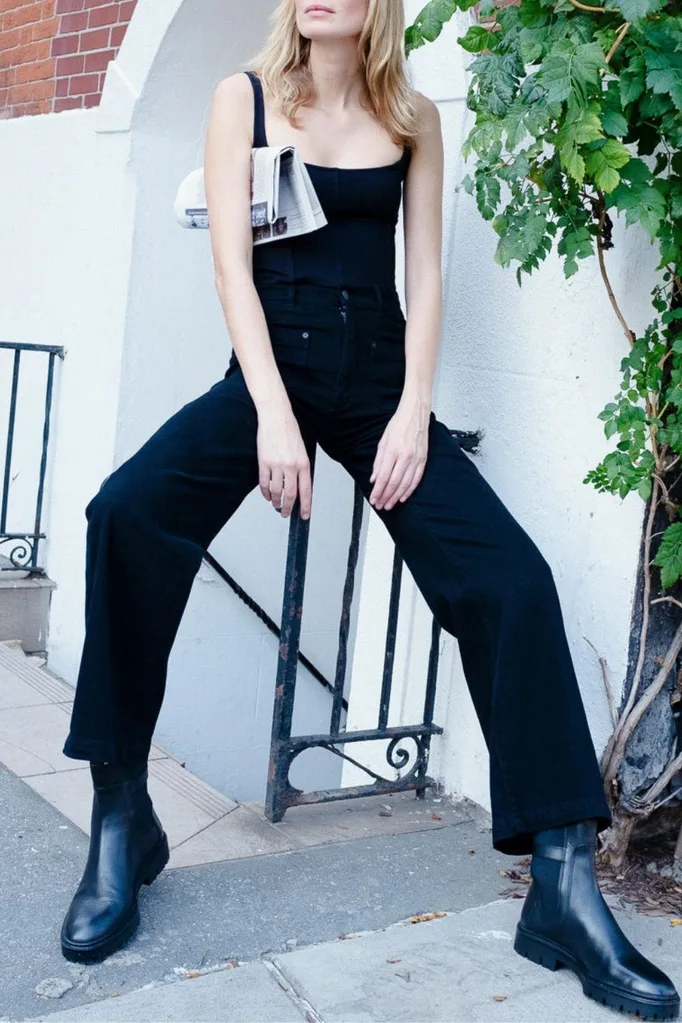
DL1961
What makes DL1961 Denim stand out is it’s completely in-house production, from spinning the yarn, weaving the fabric and dying all done in the same facility, reducing the amount of energy and emissions needed to produce each piece. The brand also uses lower-impact cellulose fibres, crafting jeans from certified-organic cotton and using clean indigo dyes that reduce water and create no harmful byproducts.
Shop here.
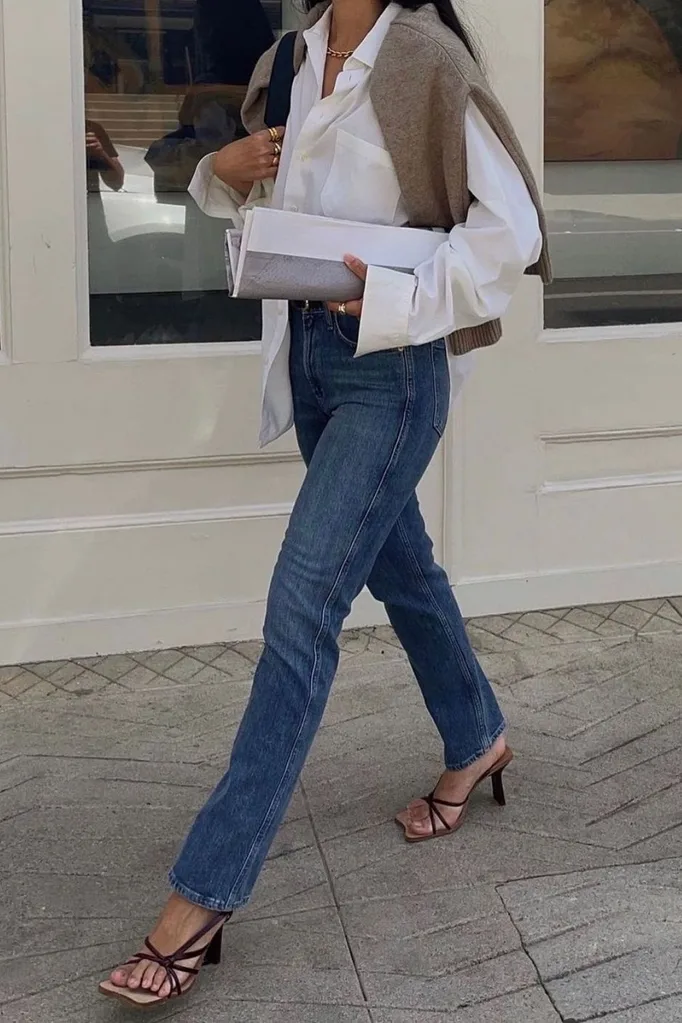
Citizens of Humanity
A fan favourite among the celebrity set, Citizens of Humanity not only creates fashion-forward silhouettes in high-quality fabrics, but the brand’s organic-cotton collection uses water-saving, energy-reducing technology to lower its environmental impact. The brand also owns two other denim labels, Goldsign and Agolde, which are making similar strides in organic fabrications, laser treatments, and ozone washes, which reduce energy and water consumption.
Shop here.



